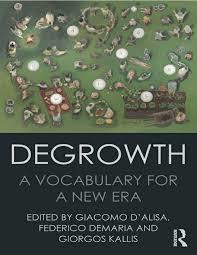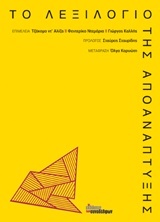-
We live in an era of stagnation, rapid impoverishment, rising inequalities, and socio-ecological disasters. In the dominant discourse, these are effects of economic crisis, lack of growth or underdevelopment. This book argues growth is the cause of these problems and that it has become uneconomic, ecologically unsustainable and intrinsically unjust. When the language in use is inadequate to articulate what begs to be articulated, then it is time for a newvocabulary. A movement of activists and intellectuals, first starting in France and then spreading to the rest of the word has called for the decolonization of public debate from the idiom of economism and the abolishment of economic growth as a social objective. "Degrowth" ("Décroissance") has come to signify for them the desired direction of societies that will use less natural resources and will organize to live radically differently. "Simplicity", "conviviality", "autonomy", "care", "the commons" and "dépense", the social and ritual destruction of accumulated surplus, are some of the words that express what a degrowth society might look like. Degrowth A Vocabulary for a New Era is the first English language book to comprehensively cover the burgeoning literature on degrowth. It presents and explains the different lines of thought, imaginaries, and proposed courses of action that together complete the degrowth puzzle. The book brings together the top scholars writing in the field with young researchers who cultivate the research frontier and activists who practice degrowth on the ground. It will be an indispensable source of information and inspiration for all those who not only believe that another world is possible, but work and struggle to construct it right now. Join our book community at www.degrowthvocabulary.net for more material and conversations
⟶ Library of Congress
D'Alisa, Giacomo [Επιμελητής]. Degrowth: a vocabulary for a new era
Έργο (αυτοτελές έργο)
2014
Αγγλικά
18143880
https://catalog.loc.gov/vwebv/staffView?searchId=886&recPointer=0&recCount=25&searchType=0&bibId=18143880

